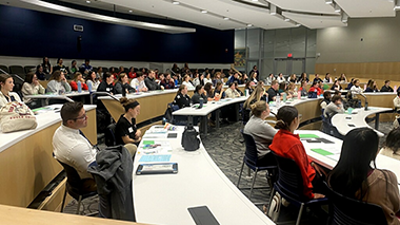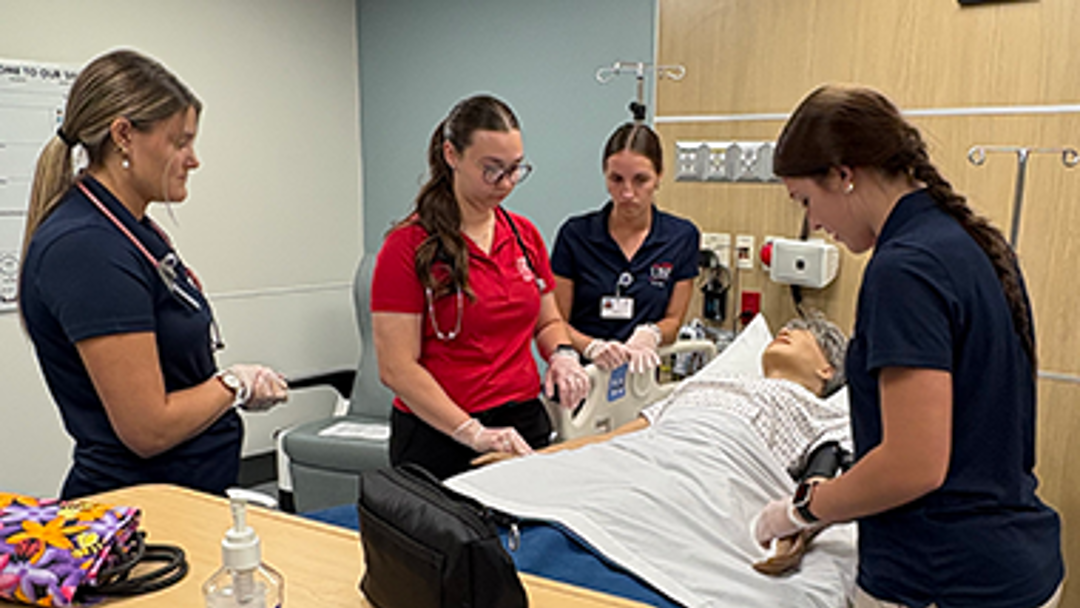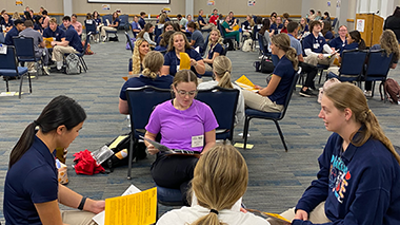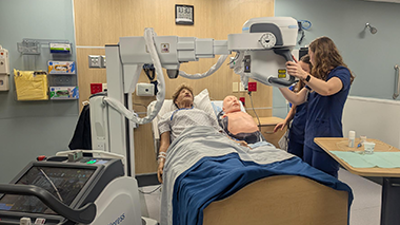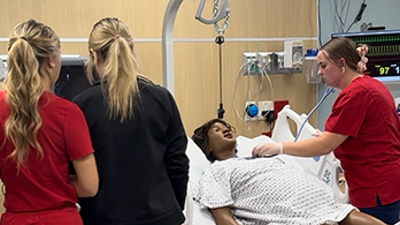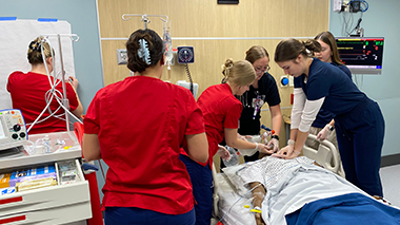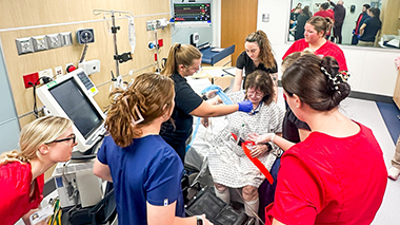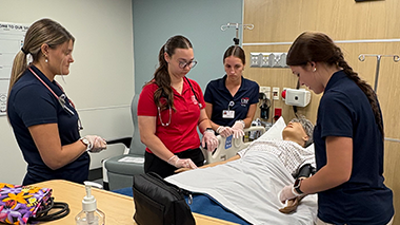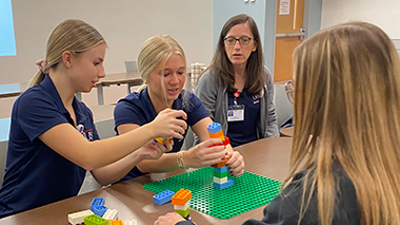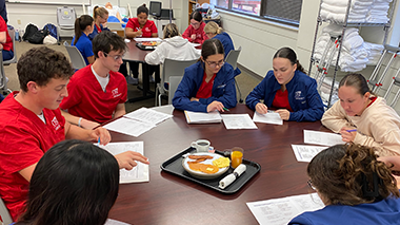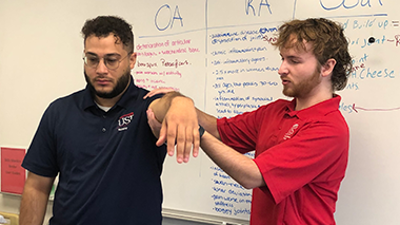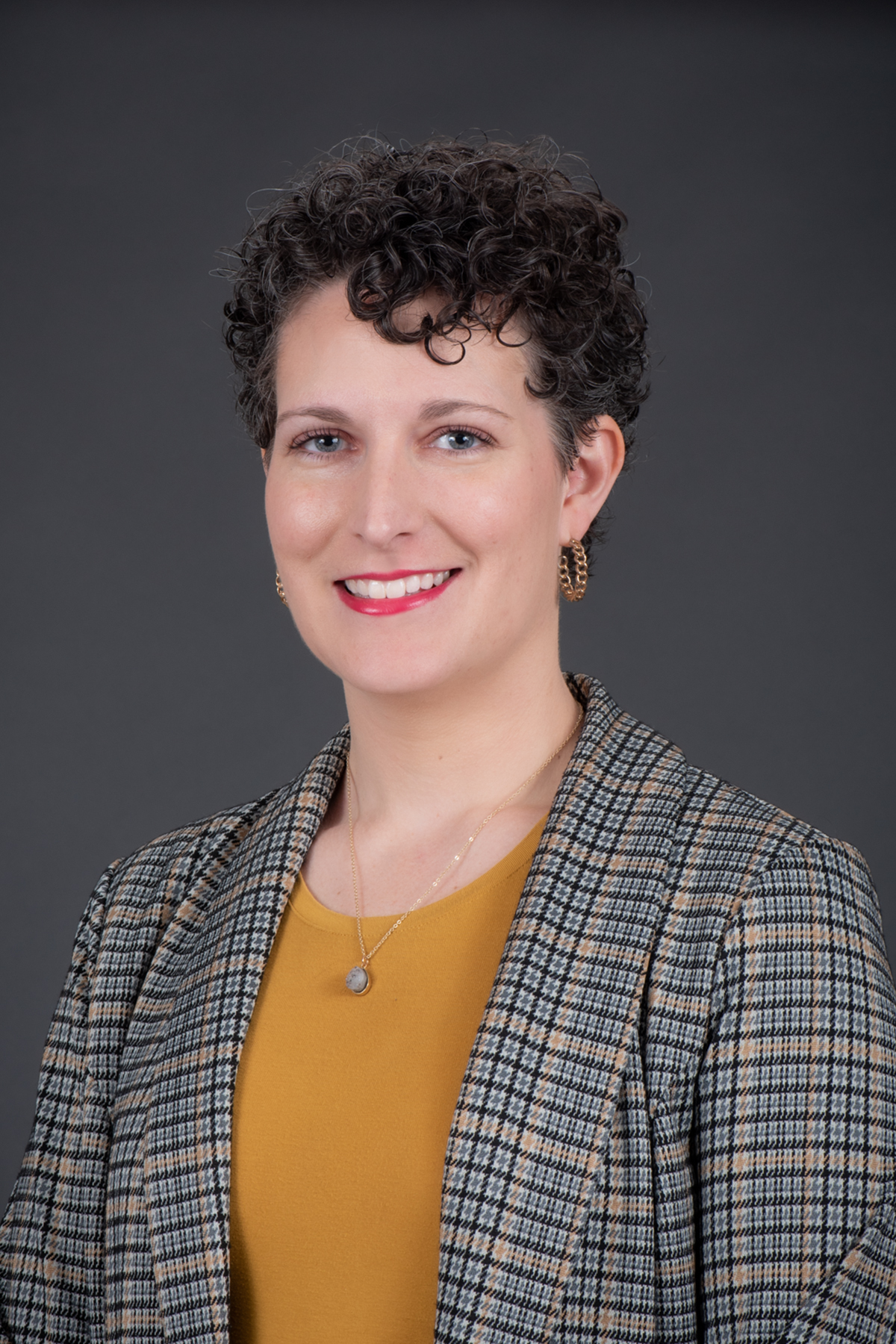About Interprofessional Education
The World Health Organization describes interprofessional education as: "When students from two or more professions learn about, from, and with each other to enable effective collaboration and improve health outcomes." (WHO, 2010)
The development of interprofessional education in the United States mirrors the movement that is developing internationally. Faculty in the Kinney College of Nursing and Health Professions work to ensure that students are well-prepared to fully participate in the evolving health environment with effective interprofessional knowledge and skills. Healthcare teams that practice collaboratively are the key to safe, high quality, accessible, affordable, patient-centered care that is desired by everyone.
Students in the Kinney College of Nursing and Health Professions are engaged in interactive learning with each other. Being able to work effectively as members of clinical teams during their education is a fundamental part of learning. Each student learns to value the unique perspective and knowledge the other professions bring to the care of the patient.
